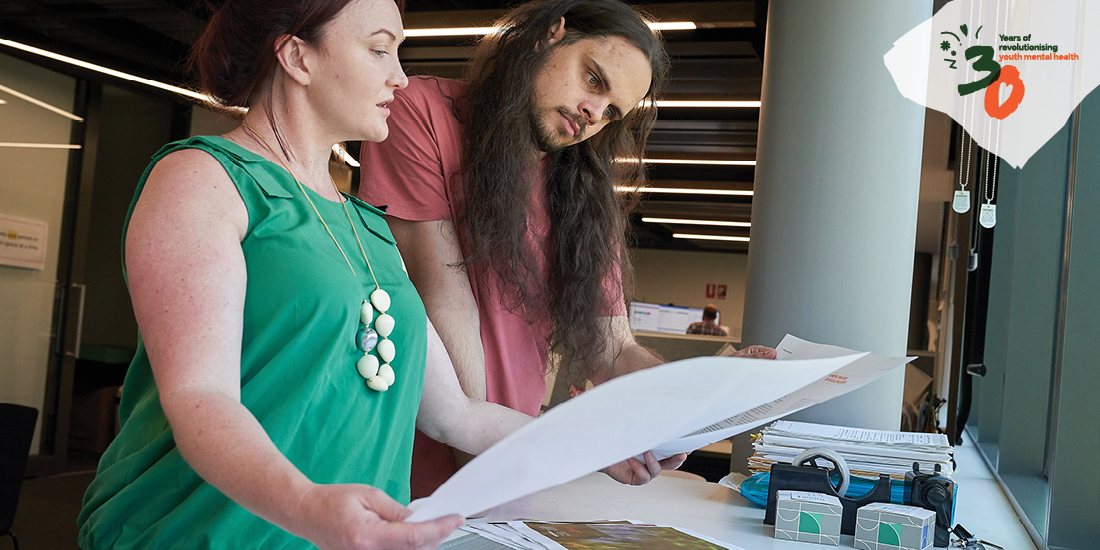
Over the past 30 years, Orygen’s research has focussed on relentlessly redefining what’s possible in global youth mental health research.
Today Orygen’s Parkville headquarters is home to the world’s largest concentration of youth mental health researchers, clinicians and educators – all focused on integrating global research, policy and education with evidence-based clinical care.
Orygen Chief of Research, Professor Eóin Killackey, said research staff numbers had grown to 145 in 2020–21, with 48 research projects underway and more than 300 research papers published that year alone.
“At Orygen we are not seeking to do research for research’s sake, but to create evidence to improve prediction of illness, interventions and models of care to ultimately make a positive difference to the lives of young people who experience mental ill-health,” Professor Killackey said.
“It’s research for reform, it’s research for change and for developing a whole new field of youth mental health care.”
Over the past 30 years, major areas of research impact have included:
- Developing the early intervention approach for treating psychosis and identifying that it is possible to reduce the risk of developing psychosis among people who are showing signs of the disorder. This approach has revolutionised research and clinical practice and is now applied worldwide across a range of mental disorders.
- Showing that vocational interventions can significantly improve work outcomes in young people with mental illnesses, particularly the Individual Placement and Support approach.
- Developing the clinical staging model for diagnosing mental illness. The model helps clinicians improve their selection or sequencing of treatments and enables them to make more accurate statements regarding people’s prognosis.
- Developing early intervention for severe personality disorder, which has been implemented internationally. This demonstrates that early detection and treatment are embraced by young people, improving their relationships and daily functioning, and reducing self-harm and suicide attempts.
- Showing that psychological therapies are the best initial treatment for young people with depression.
- Developing the Moderated Online Social Therapy (MOST) platform, which provides young people with instant online access to therapeutic content, clinical support, and peer support when and where they need it. MOST has been rolled out in Victoria, New South Wales and Queensland.
This work would not have been possible without the support of young people, not only as research study participants, but as advisors through co-design processes, and members of the Youth Research Council and the Youth Advisory Council.